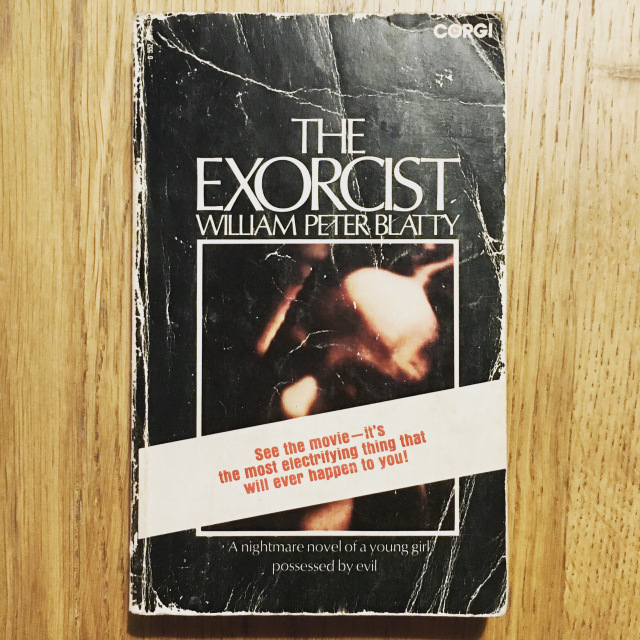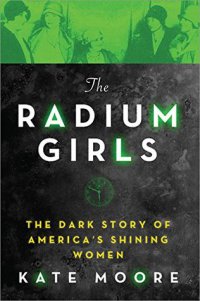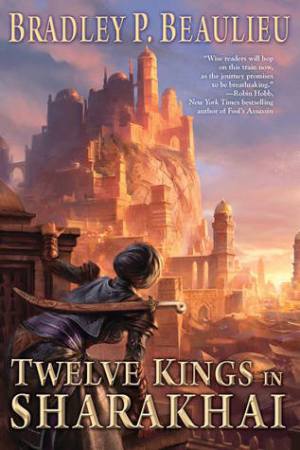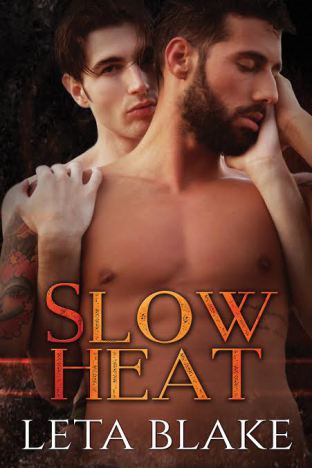I was sad to read of William Peter Blatty’s death on January 12, 2017. His 1971 novel The Exorcist and the subsequent 1973 movie adaptation are two of the most remarkable, effective and important works of art I’ve ever encountered. Seeing the film and reading the book in my mid-teens changed my life, and that’s no exaggeration.
Blatty wrote using a grand, cinematic style that perfectly suits his novels Dimiter (or The Redemption) – a story about an “agent from hell” and the subsequent investigation by Arab-European detective Meral – and 1983’s Legion – a direct sequel to The Exorcist featuring one Lt. Kinderman investigating violent occult-themed murders. These novels, along with The Exorcist, comprise a compelling triptych of Blatty’s overall themes, concepts and style. I highly recommend Legion if you are already familiar with the story of The Exorcist, and then to move on to Dimiter soon after (though it is much more of a brooding, atmospheric slow-burner in comparison).
I’ve read elsewhere that Blatty had a gift for comic writing. At home I have a copy of his 1963 comedy novel John Goldfarb, Please Come Home! and his 1966 comedy/drama Twinkle Twinkle “Killer” Kane. I’ve not managed to get around to reading these just yet, I think partly because I am hesitant to read Blatty’s attempts at humourous writing. That said, I did read his 2001 account of The Exorcist, If There Were Demons Then Perhaps There Were Angels which has some really funny sections. I’m hoping to read Goldfarb and Kane this year, so I’ll review them here when I can.

A Personal History of The Exorcist
When I was younger, the film held a strange, ethereal, untouchable quality. It was taboo, forbidden. Quickly banned by the powers that be, it was not available to buy in the UK until the late 1990s (after a brief release in the early 1980s which was quickly recalled). When it was finally re-released on home video in 1999, I remember my mother swearing to never permit me to see it, as it had negatively affected my (maternal) grandfather so much when he saw it in the cinema in the 1970s. My mother said of the film and its effect on my grandfather: “he couldn’t close his eyes at night without seeing that face.” What face did she mean?! Why was it so terrifying? My teenage mind boggled at the idea of this supremely evil film.
Consequently, I begged my (paternal) grandmother to rent it from a local video place when we were on holiday. That night, aged about 12 or 13, I watched the film for the first time, alone, in a dark, silent room. I remember the night so well, nearly twenty years later. I was paralysed for the whole length of the film, too terrified to move or to even take my eyes off the screen. The sense of dread that permeates the film gripped me from the first minute. When the film finished, I didn’t even want to touch the cassette or even the video box. A terrible aura of evil seemed to surround anything and everything to do with the film. I know for certain that I didn’t sleep a wink that night – I just lay silently in the darkness, listening for any unknown noises in the night and trying not to think of the awful images I had just seen. Closing my eyes was not an option, and I finally understood “that face” which had affected my grandfather so much. When I tried to sleep, I couldn’t avoid thinking of the demonic, boss-eyed image of the possessed Regan MacNeil.
The following morning, I was shaken and upset. I didn’t let my grandmother know that it had affected me in this way, as I didn’t want her to get in trouble with my mother. Of course I’d told my mother that I’d watched it, but I didn’t let on that I was completely terrified. For months afterwards I had trouble sleeping. Every night when I went to bed, I saw the face of the demon and would not be able to rest. I kept a bedside lamp switched on every night for months.
Despite the terror I’d experienced, I knew that the film was special. I wanted to watch it again, whilst also wanting to never even think about it. It was also around this time that I learned that the film was based on a novel by an author I did not know. I can’t quite remember how I found this out, but I do remember finding a well-thumbed 1974 Corgi copy in a Hay-on-Wye bookshop (which is now called Murder and Mayhem) in 1999 or 2000. I bought it, despite feeling that this twenty-five year old book held some of the same evil and terrific power as the film. I wanted so desperately to read the book, but I was filled with dread by the obscured, blurry cover photograph and the knowledge of some of the words and imagery contained within. It didn’t help that this particular reprint was emblazoned with the legend: “See the movie – it’s the most electrifying thing that will ever happen to you!” Ain’t that the truth.
Somehow (the exact details elude me), I ended up reading the book. I remember trying to read it only during the day, and I tried to keep it as far away from me as possible at night. Reading the book was just as terrifying as watching the film, but I found I could control my reactions a lot more, probably due to the fact that I could control when I wanted to stop and start reading. I had command over the book and as a result I took command over my emotions and reactions. Even some of the more terrifying aspects of the film were able to be tamed on the page. I distinctly remember one section of the book, where Karras tries to ask for the name of the demon, only to receive the response “nowonmai” from the possessed Regan. This minor detail passed me by in the film, but then I suddenly felt like I could ruminate on these phrases and dialogues in a way that I wasn’t able to with the movie. I could re-read passages that hinted at deeper meanings of hidden theories, or if I felt like it, I could just skip over the parts that scared me. I was also equally excited and appalled to find other sub-plots in the novel, as well as expansion of many of the primary concepts and ideas.
Since then I’ve read the book four or five times, and seen the film twenty times or more. For me, the book and the movie still hold this immense, awesome power, and any viewer or reader can hope for nothing but total immersion in this nightmarish story, thanks to Blatty’s inimitable talent.
RIP William Peter Blatty (1928 – 2017)
Advertisements Share this:




